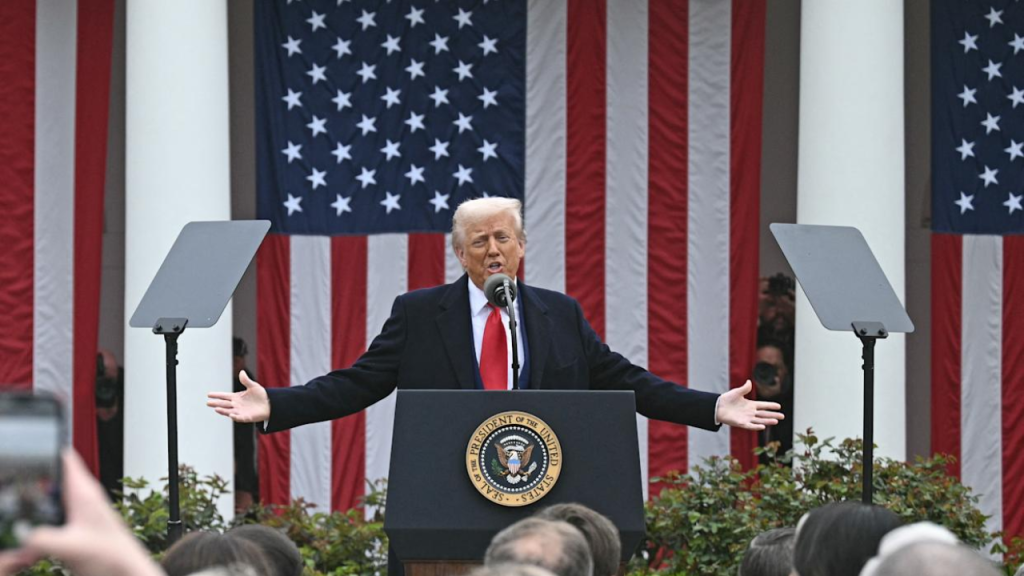
Donald Trump’s presidency brought a major shift in U.S. trade policy, most notably through the imposition of tariffs on nearly 180 countries.
Although these measures were introduced to safeguard American industries, they may unintentionally jeopardize the financial security of millions of retirees.
Many Americans depend on investment tools like 401(k)s and IRAs for their retirement, and since these accounts are often tied to the stock market, they can be vulnerable to sudden market fluctuations triggered by tariff policies.
In the wake of tariff announcements, major U.S. companies have seen their stock values drop, raising concerns among investors.
This is particularly troubling for retirees whose savings are tied up in those stocks. As Phillip Battin, CEO of Ambassador Wealth Management, explains,
“Tariffs can significantly impact investment portfolios and retirement savings by increasing costs in key sectors, potentially reducing stock prices and increasing market volatility.”
When tariffs are imposed, the cost of doing business tends to rise, either due to more expensive raw materials or restricted access to essential foreign products.
These increased costs often eat into corporate profits, driving stock prices down. For retirees whose portfolios are heavily invested in these sectors, the result can be a noticeable decline in the value of their retirement savings.
Another key issue linked to tariffs is inflation. As companies face higher production costs, many pass those costs on to consumers, leading to higher prices for everyday goods and services.
This inflation can be especially harmful to retirees living on fixed incomes, as it reduces their purchasing power over time. Michael Martin, Vice President of Market Strategy at TradingBlock, notes,
“Rising inflation and potential interest rate hikes by the Federal Reserve could limit economic growth and impact investors.”
The long-term benefits of tariffs remain a subject of debate. While some believe these measures could ultimately bolster the U.S. economy, the short-term effects are far less reassuring.
For example, the S&P 500 fell by over 3% after one major round of tariff announcements, demonstrating just how sensitive markets are to these policy changes.
For Americans approaching retirement—or already in it—the financial impact of tariffs is something that can’t be overlooked.
To safeguard their future, retirees should consider diversifying their portfolios and keeping a close eye on shifting market conditions.
Understanding which industries are most affected by tariffs can help investors make more informed decisions and reduce potential risks to their long-term savings.
